-
 Bitcoin
Bitcoin $84,705.5206
1.96% -
 Ethereum
Ethereum $1,882.8342
2.59% -
 Tether USDt
Tether USDt $0.9999
-0.02% -
 XRP
XRP $2.1020
-0.02% -
 BNB
BNB $603.8511
-0.82% -
 Solana
Solana $124.7702
-1.25% -
 USDC
USDC $0.9999
-0.01% -
 Dogecoin
Dogecoin $0.1717
1.76% -
 Cardano
Cardano $0.6717
0.25% -
 TRON
TRON $0.2380
0.73% -
 Toncoin
Toncoin $3.9856
-3.94% -
 Chainlink
Chainlink $13.7866
0.95% -
 UNUS SED LEO
UNUS SED LEO $9.4087
2.25% -
 Stellar
Stellar $0.2691
1.18% -
 Avalanche
Avalanche $19.3533
1.55% -
 Sui
Sui $2.3689
0.72% -
 Shiba Inu
Shiba Inu $0.0...01244
-1.74% -
 Hedera
Hedera $0.1666
1.40% -
 Polkadot
Polkadot $4.1088
0.73% -
 Litecoin
Litecoin $83.2182
-0.74% -
 MANTRA
MANTRA $6.2222
-1.29% -
 Bitcoin Cash
Bitcoin Cash $306.0723
0.08% -
 Bitget Token
Bitget Token $4.6091
0.13% -
 Dai
Dai $1.0000
0.02% -
 Ethena USDe
Ethena USDe $0.9999
-0.01% -
 Pi
Pi $0.6919
-3.31% -
 Hyperliquid
Hyperliquid $13.1957
-3.08% -
 Monero
Monero $219.3099
1.05% -
 Uniswap
Uniswap $6.1691
2.09% -
 Pepe
Pepe $0.0...07614
3.60%
How to transfer cryptocurrencies through Trust Wallet?
To transfer crypto in Trust Wallet, open the app, select your cryptocurrency, enter the recipient's address carefully, specify the amount, review details, and confirm the transaction.
Mar 29, 2025 at 11:28 am
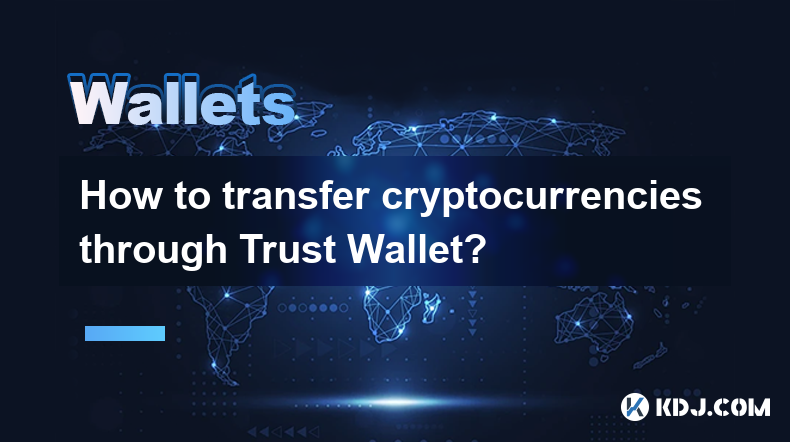
Understanding Trust Wallet's Transfer Process
Trust Wallet, a popular mobile cryptocurrency wallet, offers a relatively straightforward process for transferring various cryptocurrencies. This process involves sending your crypto assets from your Trust Wallet to another wallet address. It's crucial to double-check the recipient's address to avoid irreversible loss of funds. Understanding the nuances of network fees and transaction times is also essential for a smooth transfer. Remember, the specific steps might vary slightly depending on the cryptocurrency you're transferring.
Step-by-Step Guide to Transferring Crypto in Trust Wallet
Before you begin, ensure you have the recipient's wallet address. This is a unique alphanumeric string identifying their wallet. Incorrectly entering this address will result in the loss of your funds. Also, note the network fees associated with the transaction, as these can vary considerably.
Open Trust Wallet: Launch the Trust Wallet application on your mobile device.
Select the Cryptocurrency: Navigate to your portfolio and select the specific cryptocurrency you wish to transfer.
Tap "Send": Locate and tap the "Send" button associated with your chosen cryptocurrency.
Enter Recipient's Address: Carefully enter the recipient's wallet address into the designated field. Double-check for accuracy before proceeding.
Input the Amount: Specify the amount of cryptocurrency you want to send. Be mindful of minimum transaction amounts if applicable.
Review Transaction Details: Trust Wallet displays a summary of the transaction, including the recipient's address, amount, and network fees. Thoroughly review this information.
Confirm Transaction: Once you've verified all details, confirm the transaction. You may be prompted to authorize the transaction using your device's security features, such as biometric authentication or a PIN code.
Monitor Transaction: After confirmation, the transaction will be broadcast to the blockchain network. You can monitor its progress within the Trust Wallet app. The time it takes for the transaction to complete varies depending on the network's congestion.
Understanding Network Fees and Transaction Times
Network fees, also known as gas fees or transaction fees, are charges paid to miners or validators for processing your transaction on the blockchain. These fees vary depending on the cryptocurrency and the network's current congestion. Higher fees generally result in faster transaction times. Understanding these fees is crucial for budgeting and managing your cryptocurrency transfers. Transaction times can range from a few seconds to several minutes or even longer, depending on the network's activity.
Troubleshooting Common Transfer Issues
Sometimes, cryptocurrency transfers can encounter issues. One common problem is an incorrect recipient address. If you enter the wrong address, your funds might be lost. Always double-check the address before confirming the transaction. Another issue could be insufficient funds to cover the network fees. Ensure you have enough cryptocurrency to cover both the amount you're sending and the associated fees. Network congestion can also lead to delays. During periods of high network activity, transactions might take longer to process.
Transferring Different Cryptocurrencies
The process remains largely consistent across different cryptocurrencies within Trust Wallet. However, some minor variations might exist. For example, some tokens might require you to select a specific network (e.g., Ethereum Mainnet, Binance Smart Chain) before initiating the transfer. Always ensure you're sending the tokens to the correct network to avoid issues. Always refer to the specific instructions displayed within the Trust Wallet app for the cryptocurrency you are transferring. Incorrect network selection can lead to irreversible loss of funds.
Security Best Practices for Cryptocurrency Transfers
Security is paramount when handling cryptocurrencies. Always use a strong and unique password for your Trust Wallet account. Enable two-factor authentication (2FA) for an added layer of security. Never share your private keys or seed phrase with anyone. These are crucial for accessing your funds, and their compromise could lead to the loss of your assets. Only download Trust Wallet from official app stores to avoid malicious applications. Regularly update your Trust Wallet app to benefit from the latest security patches. Be wary of phishing scams that may attempt to steal your credentials.
Understanding Different Blockchain Networks
Trust Wallet supports a wide range of blockchain networks, each with its own characteristics. Understanding these differences is crucial for successful cryptocurrency transfers. For example, Ethereum transactions generally have higher network fees than some other networks. Bitcoin transactions typically have lower fees but longer confirmation times. Always familiarize yourself with the specific network you're using to manage your expectations regarding transaction speeds and costs.
Advanced Features and Considerations
Trust Wallet offers advanced features like custom gas fees, allowing users to adjust the transaction fees based on their preferences. This can be beneficial for optimizing transaction speeds and costs. However, it requires a deeper understanding of blockchain mechanics. Incorrectly setting custom gas fees could lead to transaction failures or delays. It's recommended to only use this feature if you understand its implications. Trust Wallet also integrates with decentralized exchanges (DEXs), allowing you to swap cryptocurrencies directly within the app. This offers convenience, but it's important to understand the risks associated with DEXs, such as impermanent loss.
Frequently Asked Questions
Q: What happens if I enter the wrong recipient address?
A: If you enter the wrong recipient address, your cryptocurrency will likely be lost and unrecoverable. There's no way to reverse the transaction.
Q: How long does a cryptocurrency transfer take?
A: Transaction times vary significantly depending on the cryptocurrency and the network's congestion. It can range from a few seconds to several minutes or even longer.
Q: What are network fees?
A: Network fees are charges paid to miners or validators for processing your transaction on the blockchain. They vary depending on the cryptocurrency and network congestion.
Q: Is Trust Wallet secure?
A: Trust Wallet employs various security measures, but it's crucial to follow best practices like using a strong password, enabling 2FA, and only downloading the app from official sources.
Q: Can I transfer all cryptocurrencies through Trust Wallet?
A: Trust Wallet supports a wide range of cryptocurrencies, but not all. Check the app to see if your specific cryptocurrency is supported.
Q: What if my transaction is stuck?
A: If your transaction is stuck, you may need to wait, check the network status, or contact Trust Wallet support. The cause could be network congestion or an issue with the transaction itself.
Disclaimer:info@kdj.com
The information provided is not trading advice. kdj.com does not assume any responsibility for any investments made based on the information provided in this article. Cryptocurrencies are highly volatile and it is highly recommended that you invest with caution after thorough research!
If you believe that the content used on this website infringes your copyright, please contact us immediately (info@kdj.com) and we will delete it promptly.
- Santiment Released Data Offering Insights for Spotting Market Dips
- 2025-04-02 11:35:12
- Have You Ever Wondered What It Would Be Like to Invest in the Next Big Meme Coin Before It Skyrockets?
- 2025-04-02 11:35:12
- Circle, the company behind the USDC stablecoin, has filed for an initial public offering and plans to list its shares on the New York Stock Exchange
- 2025-04-02 11:30:12
- Circle, the company behind USDC stablecoin, has filed for an initial public offering and plans to list on the New York Stock Exchange
- 2025-04-02 11:30:12
- Circle, the company behind the USDC stablecoin, has filed for an initial public offering and plans to list on the New York Stock Exchange.
- 2025-04-02 11:25:12
- Hyperliquid's Centralized Twist Exposes the Paradox of Decentralized Finance
- 2025-04-02 11:25:12
Related knowledge
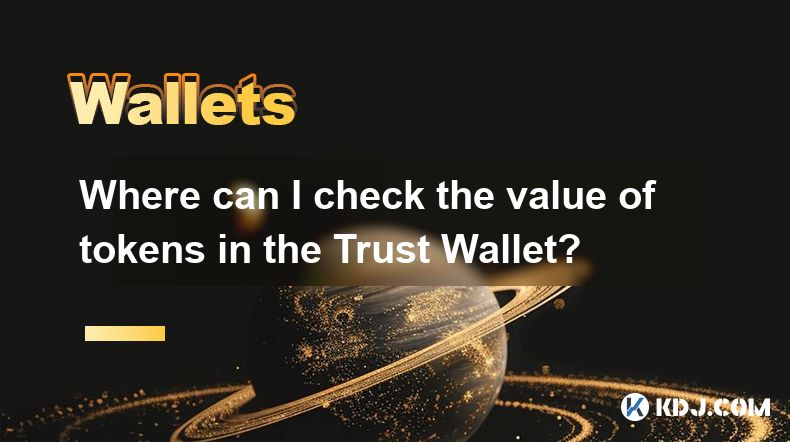
Where can I check the value of tokens in the Trust Wallet?
Apr 02,2025 at 11:14am
When using Trust Wallet, one of the most user-friendly and versatile cryptocurrency wallets available, checking the value of your tokens is a straightforward process. Trust Wallet supports a wide range of cryptocurrencies and tokens, making it a popular choice for both beginners and experienced users in the crypto space. To check the value of your token...
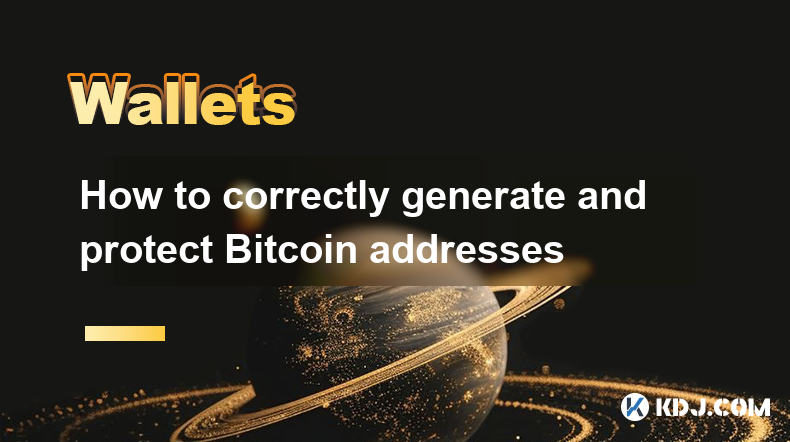
How to correctly generate and protect Bitcoin addresses
Apr 02,2025 at 06:49am
Understanding Bitcoin AddressesA Bitcoin address is like your bank account number. It's a unique identifier that allows others to send you Bitcoin. Unlike a bank account, however, Bitcoin addresses are generated cryptographically and are linked to your private keys. Losing your private keys means losing access to your Bitcoin. Therefore, generating and...
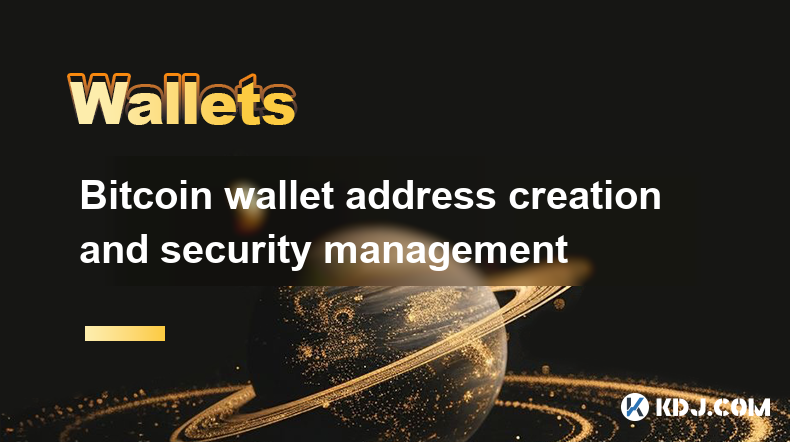
Bitcoin wallet address creation and security management
Mar 31,2025 at 10:56pm
Understanding Bitcoin Wallet AddressesA Bitcoin wallet doesn't store Bitcoin directly. Instead, it stores private keys which are long strings of characters. These keys grant access to your Bitcoin. Your public key, derived from the private key, is used to generate your Bitcoin wallet address, a unique identifier similar to a bank account number. This a...

How to easily generate a Bitcoin payment address
Mar 29,2025 at 10:49am
Generating a Bitcoin payment address might seem daunting, but it's actually quite straightforward. This process is crucial for receiving Bitcoin, as each transaction requires a unique address. Understanding how this works is fundamental to using Bitcoin effectively. This guide will walk you through the simple steps, regardless of your technical experti...
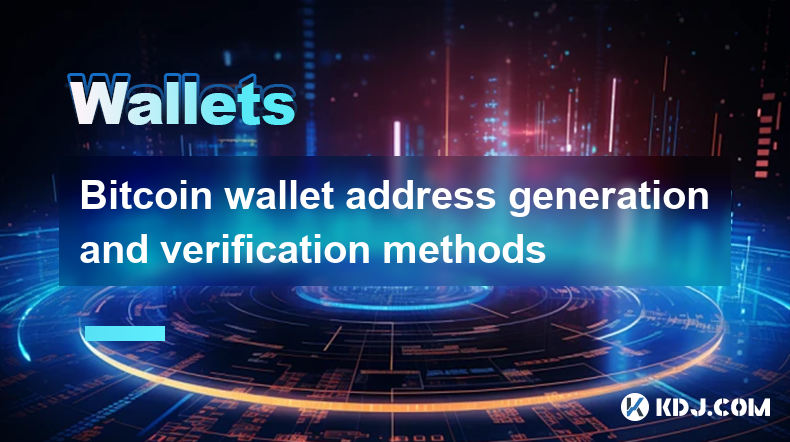
Bitcoin wallet address generation and verification methods
Apr 01,2025 at 11:01am
Understanding Bitcoin Wallet AddressesA Bitcoin wallet address is a unique identifier, similar to a bank account number, used to receive and send Bitcoin. It's a string of alphanumeric characters, crucial for participating in the Bitcoin network. Understanding how these addresses are generated and verified is paramount for secure Bitcoin transactions. ...
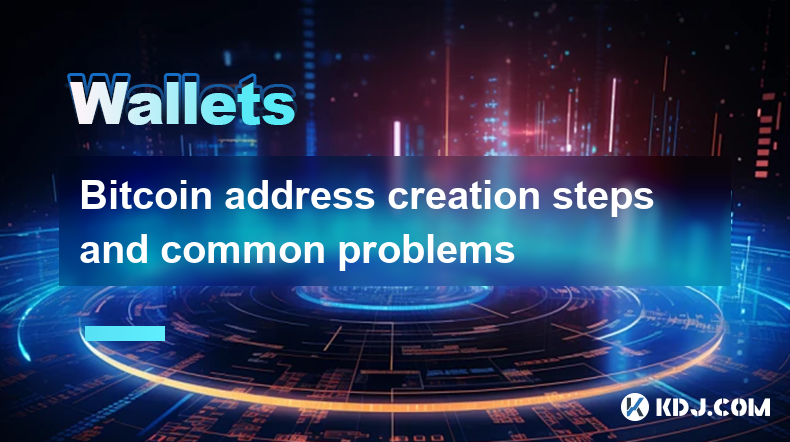
Bitcoin address creation steps and common problems
Mar 30,2025 at 06:07am
Understanding Bitcoin AddressesA Bitcoin address is a unique identifier, similar to a bank account number, used to receive Bitcoin. It's a string of alphanumeric characters generated from a public key, derived from your private key. Understanding the distinction between public and private keys is crucial for Bitcoin security. Your private key should be...

Where can I check the value of tokens in the Trust Wallet?
Apr 02,2025 at 11:14am
When using Trust Wallet, one of the most user-friendly and versatile cryptocurrency wallets available, checking the value of your tokens is a straightforward process. Trust Wallet supports a wide range of cryptocurrencies and tokens, making it a popular choice for both beginners and experienced users in the crypto space. To check the value of your token...

How to correctly generate and protect Bitcoin addresses
Apr 02,2025 at 06:49am
Understanding Bitcoin AddressesA Bitcoin address is like your bank account number. It's a unique identifier that allows others to send you Bitcoin. Unlike a bank account, however, Bitcoin addresses are generated cryptographically and are linked to your private keys. Losing your private keys means losing access to your Bitcoin. Therefore, generating and...

Bitcoin wallet address creation and security management
Mar 31,2025 at 10:56pm
Understanding Bitcoin Wallet AddressesA Bitcoin wallet doesn't store Bitcoin directly. Instead, it stores private keys which are long strings of characters. These keys grant access to your Bitcoin. Your public key, derived from the private key, is used to generate your Bitcoin wallet address, a unique identifier similar to a bank account number. This a...

How to easily generate a Bitcoin payment address
Mar 29,2025 at 10:49am
Generating a Bitcoin payment address might seem daunting, but it's actually quite straightforward. This process is crucial for receiving Bitcoin, as each transaction requires a unique address. Understanding how this works is fundamental to using Bitcoin effectively. This guide will walk you through the simple steps, regardless of your technical experti...

Bitcoin wallet address generation and verification methods
Apr 01,2025 at 11:01am
Understanding Bitcoin Wallet AddressesA Bitcoin wallet address is a unique identifier, similar to a bank account number, used to receive and send Bitcoin. It's a string of alphanumeric characters, crucial for participating in the Bitcoin network. Understanding how these addresses are generated and verified is paramount for secure Bitcoin transactions. ...

Bitcoin address creation steps and common problems
Mar 30,2025 at 06:07am
Understanding Bitcoin AddressesA Bitcoin address is a unique identifier, similar to a bank account number, used to receive Bitcoin. It's a string of alphanumeric characters generated from a public key, derived from your private key. Understanding the distinction between public and private keys is crucial for Bitcoin security. Your private key should be...
See all articles






















































































